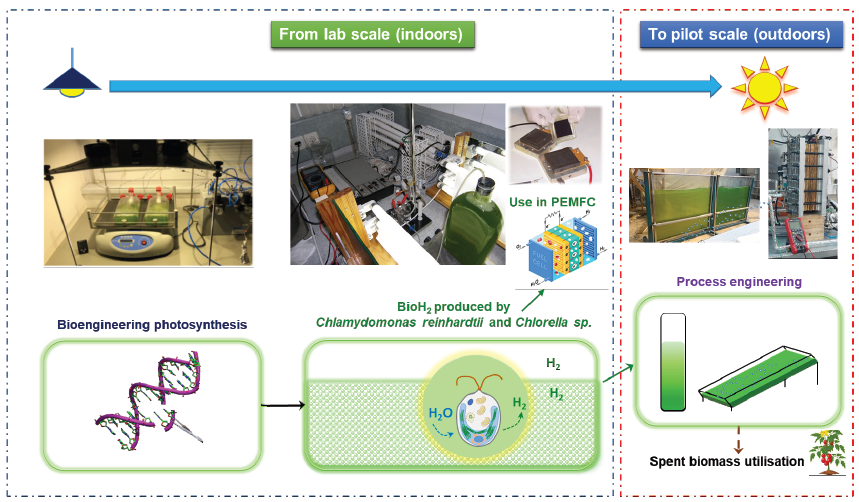The Alg4Hyd project directly addresses the core objectives of the CETP Horizon call by pioneering a transformative, cost-effective, and carbon-negative biological hydrogen (bio-H2) production process utilising microalgae. This initiative aims to revolutionise sustainable H2 generation, a critical step in transitioning from fossil fuel-dependent “grey H2” to renewable “green H2,” a key priority within the call’s sustainable energy carriers module. Hydrogen (H2), a clean energy vector with zero direct carbon emissions, is pivotal for a sustainable energy future. However, the current reliance on fossil fuels for “grey H2” production results in substantial CO2 emissions. While water electrolysis presents a carbon-neutral alternative, its current contribution to global H2 production remains limited due to energy intensity and cost. Alg4Hyd proposes a paradigm shift: bio-H2 production using green microalgae, leveraging their unique photosynthetic capabilities.

BioH2, production: From algal bioengineering to process engineering
Alg4Hyd will develop and optimize bio-H2 photoproduction using genetically engineered strains of Chlamydomonas reinhardtii (C. reinhardtii) and Chlorella sp., focusing on enhancing light-to-H2 conversion efficiency. This ambitious endeavor will be accomplished through a multidisciplinary approach, integrating molecular biology, systems biology, metabolic engineering, process engineering, and application-focused research.
